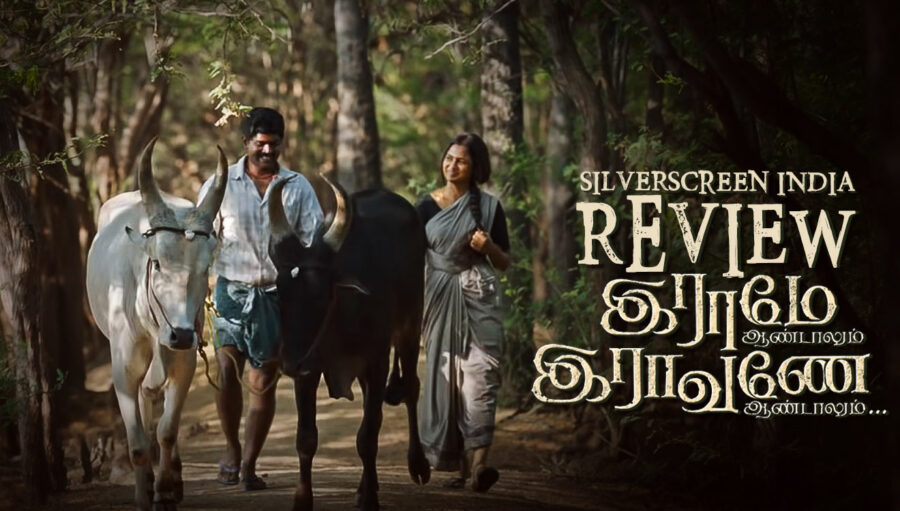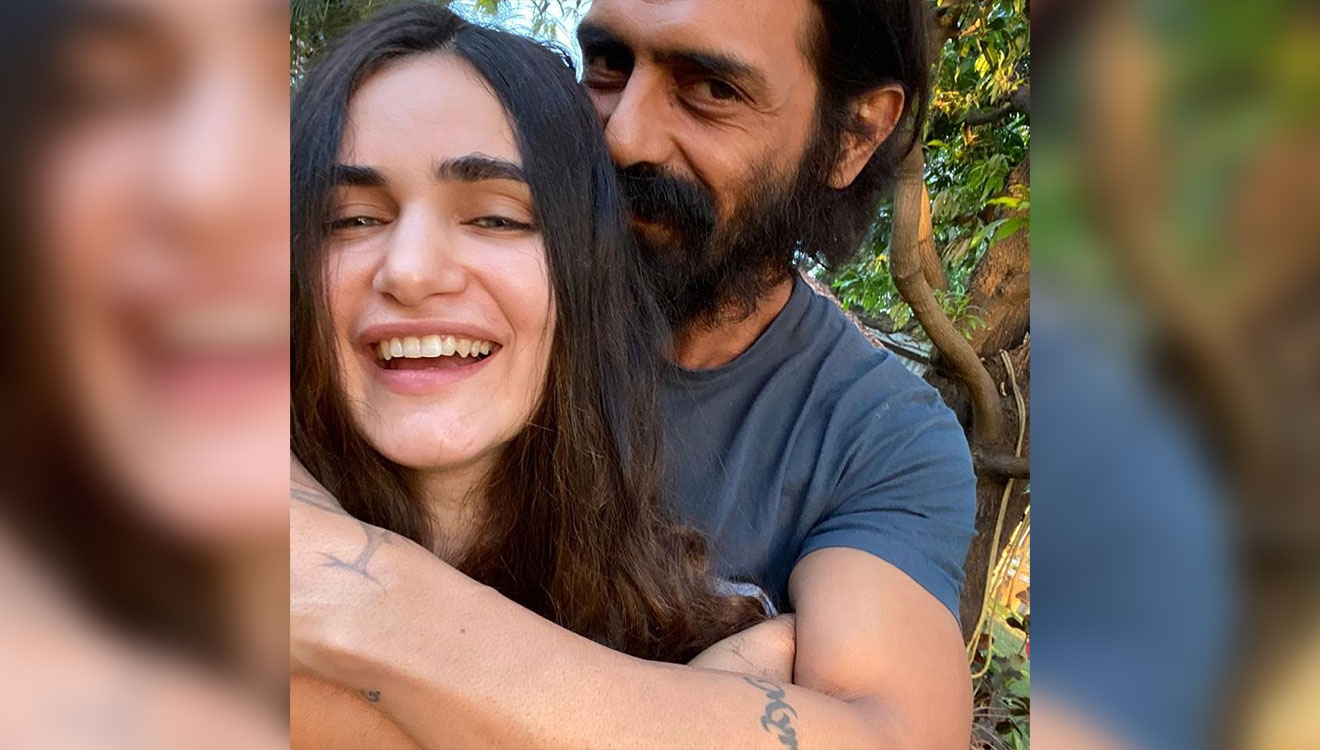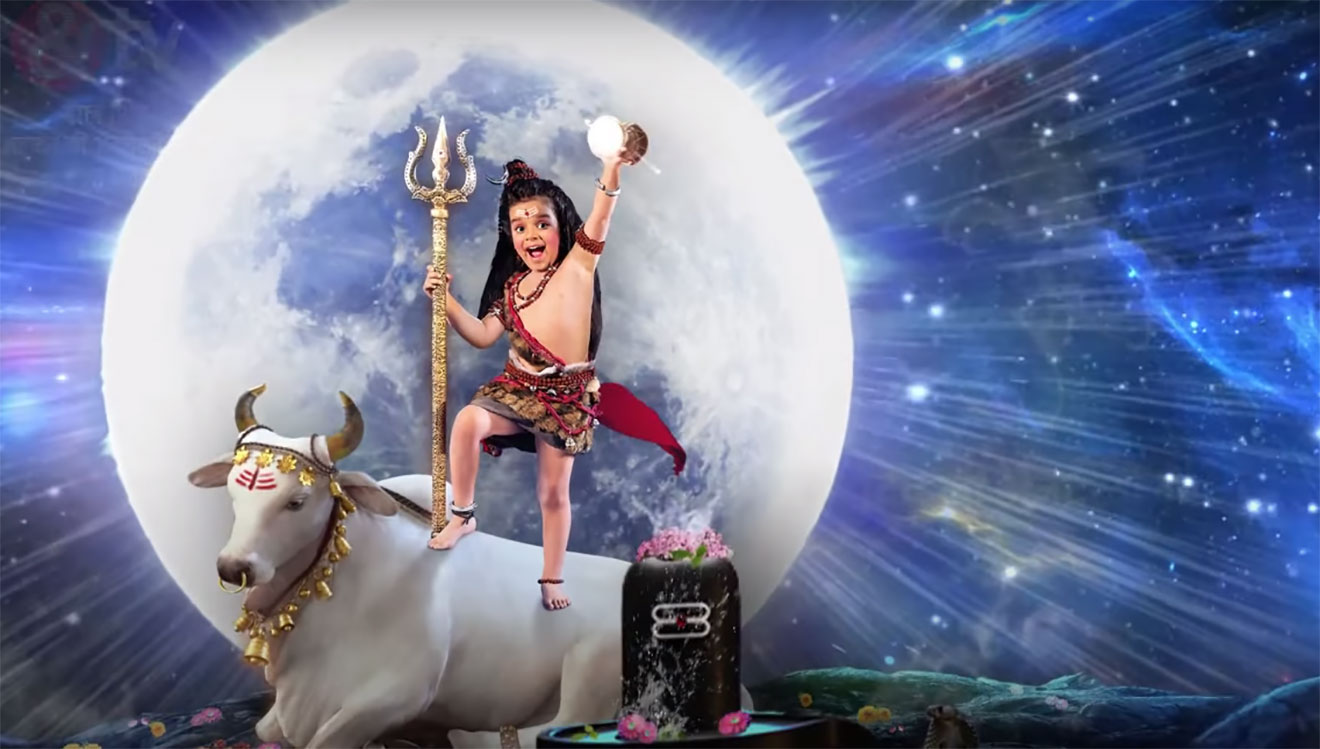Raame Aandalum Raavane Aaandalum opens with a voice-over – and a shot that pans over a busy city. Chennai. It tells us why we are watching what we are about to watch. People migrate to the big cities, it says, sounding decades older in spirit than its owner, and forget their roots. Here’s the tale of a forgotten village. By then, you know the intent. You know, this film, however moving or funny or entertaining, will resort to sly or overt guilt-trips – especially aimed at the migrant population. In the first act, an impoverished young man sets out to a police station. Just as he’s about to record his complaint, men in whites – and with more obvious authority than the former – descend on the cop to have theirs recorded. The whites report a missing beagle, the man reports a pair of missing bulls. The cop is reverential to the whites, derides the other.
None of this comes as a surprise. You know that the whites’ complaint, however inconsequential when compared to the rest, will be top priority. The sequence, after betraying a semblance of dark humour, quickly switches tack. During one instance, we see the man – Kunni Muthu – squatting amidst petty thieves awaiting his turn, the next, he’s shut behind bars, mistaken for a criminal. In another, a miscreant warns the cop of retribution by his followers – he has a large Instagram following and is due for a live. There’s a bit of verve, a promise of good screen-writing in these scenes. Then, as if a switch is flipped, the music turns sombre – the scene ends with Kunni Muthu walking out of the police station, shoulders drooped.
The early scenes that seek to establish a sense of context and place in RARA – which is based in one of Tamil Nadu’s rural pockets – are the ones that serve best. Kunni Muthu’s pal and friend-in-need drives a beat-up old TVS 50 which is a source of much mirth, as are the older women with their sense of the ridiculous and their delightful lack of verbal filter brought on by age. An especially funny one sees Kunni Muthu and friend being chased down by a drunk man and his allies. The chasers are on foot, and the chased on the moped which only manages to stay a couple of paces ahead. In the end, the duo, their initial courage all but melted away, takes refuge in a chicken coop. It’s in these moments that RARA thrives and urges you to make its acquaintance.
It isn’t hard to deconstruct the premise of the film. The title explains away the intent, dropping heavy hints. A wry Tamil saying that underlines the relationship between those in power and the poor, it’s laced with apathy, cynicism, and an abject disregard for changes in power structure which rarely ever impact the poor. At least, in a way that positively disrupts their lives. RARA latches on to the thread, stretches it to maximum potential.
Kunni Muthu (Mithun Manickam) – a lowly farmer – and his wife raise two bulls in interior Tamil Nadu. Poocheri doesn’t have electricity, or any of the basic facilities that come with municipal administration. Indeed, the residents don’t quite know – and possibly are too busy with everyday survival to care – if they really belong to one. To Muthu and his wife Veerayi (Ramya Pandian), the bulls are their children, human in every way except their obvious appearance. When Veerayi wakes up to find them missing one morning, the couple are plunged in sorrow – more so because they can’t count on the cops for help.
Muthu’s search for his children leads him to many places – among them, a media house with tanking TRPs and in dire need of explosive content. It’s a setting that has abundant potential for dark comedy – and even for couching lessons within dark comedy, if you would. RARA briefly toys with the idea and discards it in favour of overt sentiment and mawkish displays of the couple’s plight.
Recommended
Also, the film doesn’t invest enough time to show us the camaraderie between Kunni Muthu, Veerayi, and the bulls that they adore. Granted, there’s a backstory, but apart from passionate assertions of the couple’s love for the animals, we aren’t shown why – or how the love came to be. A costly misstep, it’s still perhaps excusable in the larger scheme of things. What isn’t is the paternalistic tone that the film adopts in the portrayal of the disadvantaged. In one instance, it scorns at the couple’s desperate belief in the occult to find the animals, while another shows a reporter talking down to the villagers, blaming them for being manipulated by the politicians. It’s a serious misreading of the situation, and a defining moment that tells you how the film views its people.
*****
This Raame Aandalum Raavane Aandalum review is a Silverscreen original article. It was not paid for or commissioned by anyone associated with the movie. Silverscreen.in and its writers do not have any commercial relationship with movies that are reviewed on the site.



